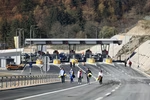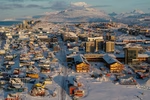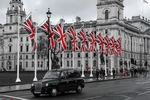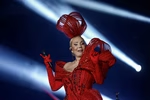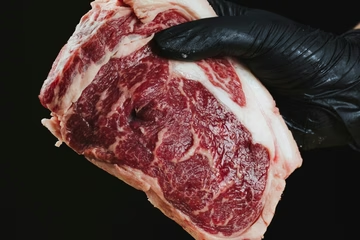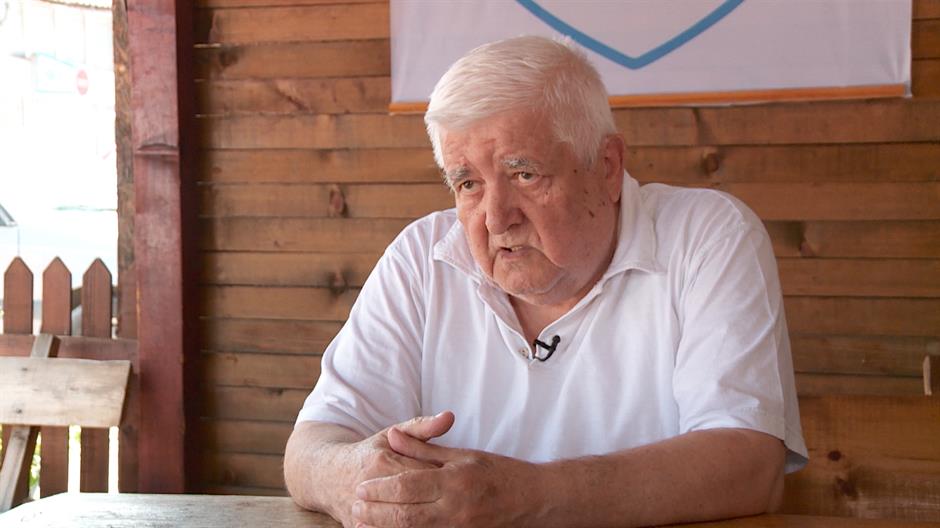
Ethnic Serbs living in Bosnia's Federation (FBiH), the part of the country shared by Bosniaks and Croats, are not happy about a recent statement by the President of the Serb-dominated part of the Country, Republika Srpska (RS), who said he would not deal with FBiH in an official manner.
RS President Milorad Dodik is running for the Serb member of Bosnia's tripartite Presidency, but is also advocating the secession of the RS from the country. He said that if he were to win the post, he would only tend to the needs of the RS.
But there are Serbs living in the other part of Bosnia as well, and they have been fighting for their constitutional rights for years in certain areas in FBiH.
Jovo Janjic is one of them. He told N1 that Dodik's statement did not surprise him.
Janjic is the head of a community of Serbs who stayed in Sarajevo during the war, and he said that those Serbs are still seen as "traitors" by the RS, and that those in power in the Serb-dominated entity ignore them.
"It is all about politics. If you have connections within politics - they you are cared for. If you don't, then nobody cares. That is the issue with the Sarajevo Serbs," Janjic said, adding that the Serbs who remained in the Federation after the internal division of the country "are the biggest victims of the creation Republika Srpska."
Bosnia's Presidency should be the one playing the strongest role in promoting the rights of peoples on all of Bosnia's territory, but it rarely does, he said.
Although Serb Presidency member Mladen Ivanic has tried to advocate for the rights of Serbs in FBiH, especially for those living around the Mostar area, serious support for Serb constitutional rights in FBiH is lacking.
According to a professor at a High school in Mostar who is a Serb, Milan Jovicic, Serbs in FBiH are so-called "reserve Serbs".
"Those are Serbs that stayed in FBiH and in this city with their neighbors to live there and protect what can be protected," Jovicic said.
The Constitutional Court of FBiH recently ruled that Serbs in three Croat-dominated cantons within the entity must be treated as constitutive peoples and that their language and their Cyrillic alphabet is equal to other languages and the Latin alphabet.
"If there is a just system in the Herzegovina-Neretva Canton (HNK, one of the Croat-dominated cantons in FBiH), then there will be one in every other part of Bosnia," deputy Chairman of the HNK Assembly, Vesna Saradzic, said.
Although Dodik has declared he is fighting for Serb rights in FBiH, he did little in a political sense to fight for them, as he is entering a coalition with the leader of the Croat Democratic Union (HDZ), which is in power in FBiH's Croat-dominated cantons.
The HDZ has been the main barrier to achieving the Serbs’ constitutional rights in those areas.
"There is no Bosnia and Herzegovina without the Presidency. There is no Presidency without the three Presidency members, as representatives of the three constitutional peoples (Bosniaks, Croats and Serbs). They are being elected from the entities, but they represent the peoples," former Presidency member Zivko Radisic said recently.
The members of the Presidency are elected by the people, regardless of the fact that they are elected from the entities, and they represent the nations and should be responsible to all nations and citizens in all of Bosnia, those who spoke to N1 said.
The largest Serb community in FBiH is in the Livno Canton, where there are some 11.000 Serbs living in Drvar, Glamoc and Grahovo, according to the 2013 census. But they do not have the status of constitutive peoples there either, as they don’t in the other cantons ruled by the HDZ.
Kakvo je tvoje mišljenje o ovome?
Učestvuj u diskusiji ili pročitaj komentare





 Srbija
Srbija
 Hrvatska
Hrvatska
 Slovenija
Slovenija













